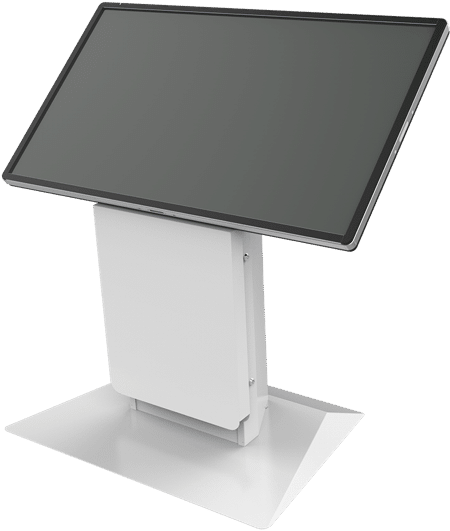
Throughout medical history, physicians have followed the ethical guidelines of the Hippocratic oath, which includes the solemn promise to keep patient information strictly confidential. This commitment to privacy has become tougher as healthcare providers have begun to modernize through digitization, and healthcare kiosks can play a key role in helping IT departments keep sensitive information secure.
New Federal Laws Challenge Providers to Digitize
The Health Insurance Portability and Accountability Act (HIPAA) is a series of federal regulations that in recent years has among other things pushed healthcare providers to digitize medical records to make them more portable, confidential and secure. As healthcare providers convert to electronic medical files, they also are digitizing and modernizing other tools in their workflow, such as patient forms, insurance claims and payment transactions.
As a result, many healthcare administrators are implementing digital healthcare kiosks to handle sensitive data, cut expenses and improve patient care. More and more, patients arriving at a hospital or clinic can use healthcare kiosks to register, check-in and make copayments, which can help reduce wait times and improve patient satisfaction. One hospital that employed self-service kiosks lowered check-in time for first-time patients by 25 percent and for returning patients by 75 percent.
Furthermore, physicians can use digital kiosks to pull up electronic medical records and view a patient’s entire medical history, which can help maximize valuable face-to-face time. Easy access to medical records through digital kiosks also can help doctors view a patient’s medical history in a digital format, which can be filtered by date, ailments, types of test, and more, which reduces the administrative time spent digging through old records.
Studies show that one out of every five hospital radiology tests are duplicates, which costs providers approximately $20 billion dollars a year. Additionally, 63 percent of outpatient chart pulls were duplicate reports, an inefficiency that could be reduced dramatically through the use of healthcare kiosks.
Healthcare Kiosks Can Help Relieve Stress in IT Teams
While recent trends and federal mandates to digitize have left many providers scrambling to make sure that their modernization solutions are secure, innovative kiosk manufacturers have aimed to make IT department managers’ lives easier by building self-service machines with threat protection as a given.
Such defense is critical not only to safeguard health data for the patient’s sake, but also because healthcare providers expecting lower costs through digitalization can still lose big by unwittingly exposing medical information.
Because of patient protection legislation, medical identity theft can subject providers to substantial financial penalties; one study estimates that nearly 2 million Americans have been victims of medical identity theft, and under federal law, each incident—one not due to negligence—can cost providers up to $50,000.
To help prevent security breaches, many cutting-edge healthcare kiosks feature biometric devices for authenticating patient logins and data access, as well as state-of-the-art card readers and signature pads for secure e-payments.
Automatic session timeouts after inactivity also prevent identity theft and promote privacy. Furthermore, IT departments can configure kiosks to make the insertion of thumb drives and SD cards impossible, eliminating access points for computer viruses and malware.
Contact Olea Kiosks Today
Healthcare providers are discovering how kiosks save providers money while keeping medical records secure and private. Olea’s ADA-compliant kiosks with easy-to-use interfaces are ideal solutions for today’s healthcare environment.
If you are looking to provide an efficient, convenient, and highly secure healthcare solution, contact Olea Kiosks today to find out how our customizable, award-winning healthcare kiosks can help your organization and improve patient satisfaction.

